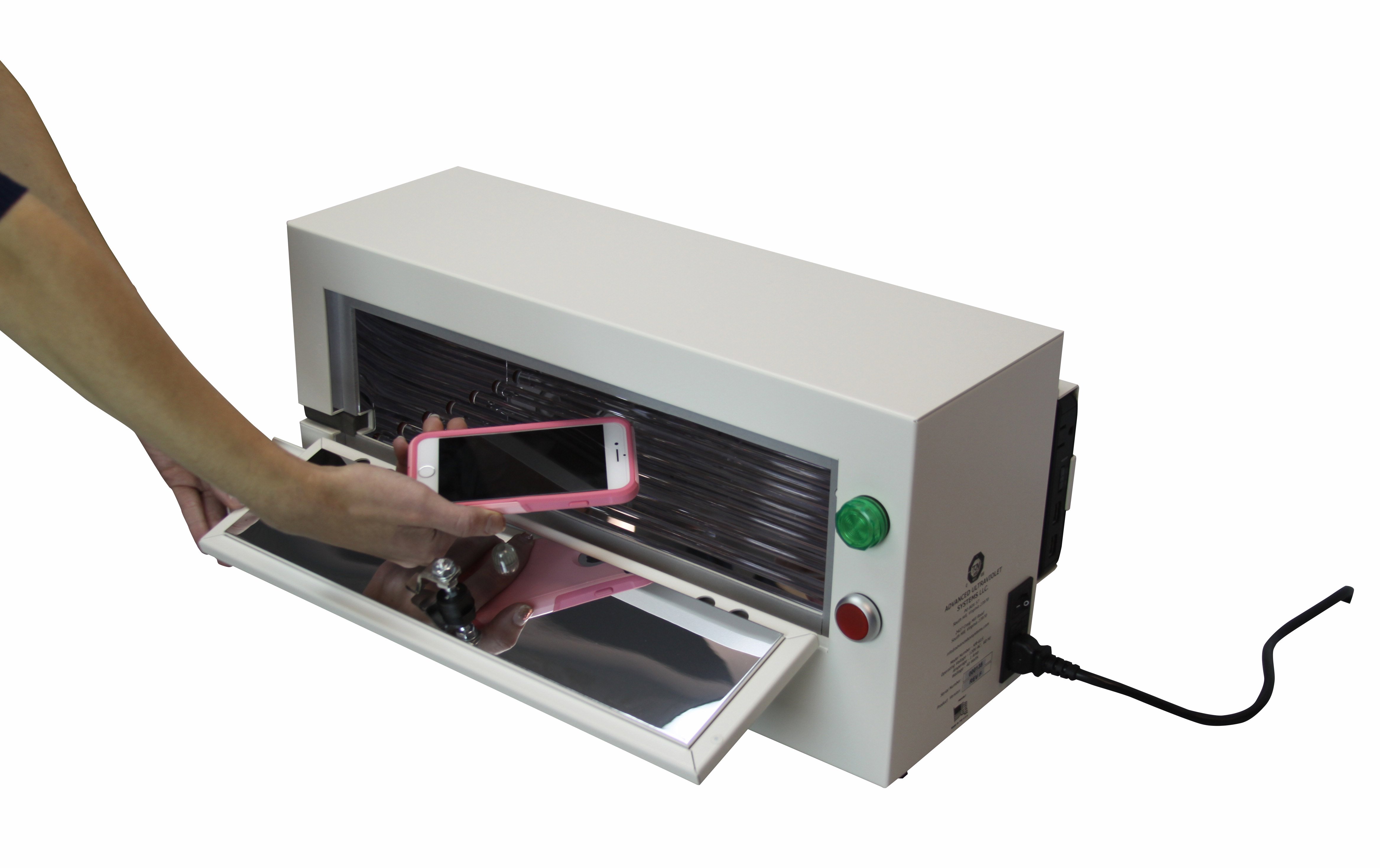Carilion NICU uses UV light to protect tiniest patients from unseen germs
• By Luanne Rife luanne.rife@roanoke.com 981-3209
Luanne Rife

Clinical nurse specialist Kim Ramsey explains why Carilion Roanoke Memorial Hospital has installed a UV box in each of the five pods of the Neonatal Intensive Care Unit. The box uses ultraviolet light to kill bacteria and viruses on hard surfaces, especially phones. Visitors often want to use their phones to take photos and videos of newborns, but the babies in the unit are premature and sick and have compromised immune systems.
Clinical nurse specialist Kim Ramsey demonstrates the use of a box that uses ultraviolet light to disinfect germ-laden cellphones of visitors to the neonatal intensive care unit at Carilion Roanoke Memorial Hospital. The process takes less than a minute.
Clinical nurse specialist Kim Ramsey demonstrates a box that uses ultraviolet light to disinfect visitors’ cellphones at the neonatal intensive care unit at Carilion Roanoke Memorial Hospital. The process takes less than a minute.
Carilion Clinic’s Neonatal Intensive Care Unit nurses wanted a safe way for parents to take photos of tiny, sickly newborns without exposing them to the harmful germs that hitchhike on phones.
After a year of looking for a simple, easy-to-use solution, they settled on boxes that use ultraviolet light to kill viruses and bacteria without harming expensive electronics.
During the past month, the UV boxes were placed at the hand-washing stations in each of the NICU’s five pods.
Clinical nurse specialist Kim Ramsey said visitors have not balked at using the boxes, unlike other solutions they’ve tried in the past.
“Our first problem-solving process was to have people put cellphones in little baggies. First of all, you don’t know how sanitary the baggies are because they are on pallets in warehouses, and they are hard to use in a baggie,” she said. The more difficult something is to use, the less likely visitors will comply.
Ramsey said simply banning phones wasn’t practical.
“Ten or 15 years ago, people just used the phones to talk and you could say, ‘If you need to talk, step into the hallway.’ But today, phones are lifelines,” she said.
Parents want to be able to take photos and videos of their newborns and to be able to check on their kids at home. And the NICU uses iPads for parent education and to keep all connected.
Not just visitors have phones. So, too, do nurses and doctors.
“There’s lots of research that prove cell phones are extremely dirty and carry germs,” Ramsey said. “And there is research that shows NICU parents know this fact, but they don’t take steps to prevent cross-contamination or to decrease the risk of infection.”
Neither the American Academy of Pediatrics nor the National Association of Neonatal Nurses has offered a universal recommendation for disinfecting phones, she said, and policies differ at hospitals across the country.
“We looked into other things and found this product, and I did some research on the technology,” she said. “It’s proven to be effective at killing all kinds of bacteria and viruses. The kind of standard for disinfection is if it can kill C. diff.” Clostridium difficile can live outside the body for months and can cause severe diarrhea.
The light-sanitizing process isn’t new for hospitals. Roanoke Memorial uses a robotic disinfection system with UV light technology to treat rooms of patients who have infections such as C. diff or norovirus.
C. diff isn’t typically found in NICUs, but if a technology is capable of killing it, then the process likely will knock out other, less difficult to eradicate germs.
Ramsey said that standard appealed to the NICU staff who can expect to care for at least 42 babies each day. The NICU has room for 60 babies, and the past few months it has averaged about 50 sick newborns a day — each with his or her set of phone-toting visitors.
“Sick and premature infants have almost no immune system to begin with,” Ramsey said. “They need a lot of handling because they are babies, and they are candidates for opportunistic infections.”
To lessen the risk, staff and visitors on entering one of the NICU’s five pods are asked to place their phones, glasses, pens and any other equipment that can be exposed to light into a box the size of a toaster oven. The ultraviolet light kills the germs without the use of chemicals.
During the 45-second cleansing cycle, visitors are asked to wash their hands and arms up to their elbows.
Ramsey said the outside of the UV boxes are wiped down to lessen the risk of germs lurking on knobs and doors. The boxes are also used to disinfect stethoscopes, thermometers and blood pressure cuffs used on the infants.
The five boxes were funded through community donations.

